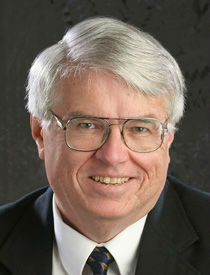
Culture
We were both 'born or brought up before the widespread use of digital technology.' I do OK, but she is more tech savvy. Still, we each -- to carry the term one step further -- speak with an accent. 'Tech' is not our native tongue.

Dodds
When I asked my daughter what classes my grandson was taking, she told me one was called "digital immigrants."
"Are you sure?"
"I think that's the name of it," she said.
He's a sixth-grader. First year of middle school.
"What is it?" I asked her.
"A computer class."
I caught myself from saying, "You mean typing?"
Turns out she had the name right, but I still didn't know what "immigrants" had to do with a computer class. So, this man born in the mid-20th century looked up the phrase online and voila!
Turns out I'm an immigrant in the 21st century. And so is my daughter.
We were both "born or brought up before the widespread use of digital technology." I do OK, but she is more tech savvy. Still, we each -- to carry the term one step further -- speak with an accent. "Tech" is not our native tongue.
In many instances, we rely on paper, pen and books. We like them and use our own combination of both tech and "old school" in our tasks at home and work.
So why aren't all sixth-graders "digital natives"? Because some, for a variety of reasons, haven't had a lot of access to technology in their homes or classrooms.
I realize now that when I talk to my grandkids about "the old days" -- which, by the way, don't seem that long ago to me -- I'm also talking about "the old country." About the world where I grew up.
It isn't that I emigrated from it. It simply slipped into where I am now. The world of my children's childhood has done the same with them.
It's a strange thought, but I realize it's always been that way. What my grandmother talked about, what my parents talked about, always seemed ... at least vaguely foreign. If not very much so.
Horse and buggy at end of the 19th century. No electricity on the farm. Radio but no television. Ice boxes, not refrigerators. Fans but no air conditioning. And on and on.
What about my own childhood? So typical and normal -- to members of my generation. One black-and-white TV in the house. (With no remote.) One phone. (Landline, of course. What else could it be?)
One car with kids riding in the front seat and the back. (No seat belts. That was for airplanes -- or so we heard.)
My very own transistor radio! (With an earphone.) And on and on.
Just as I can't imagine my grandparents' childhood and young adult life, my grandkids will always be pretty clueless about mine. Yes, I tell them stories, but kids are kids. I'm sure Grandma Dodds told me things that went in one ear and out the other. (Even if one ear had that earphone in it.)
All of this has been on my mind as Thanksgiving, Christmas and New Years are fast approaching. People from one planet but three different worlds will be sitting around our family table.
Still, there are some words, some experiences, some ways of life, that haven't changed. And I hope (and pray) they never do. When any of us talks of love or family or faith, everyone knows what those mean.
- Bill Dodds is a columnist with the Catholic News Service.
Recent articles in the Culture & Events section
-
Scripture Reflection for May 11, 2025, Fourth Sunday of EasterDeacon Greg Kandra
-
Our heart of darknessGreg Erlandson
-
Pope Francis and the persistent habit of 'maybe'Russell Shaw
-
Laying odds on papabili, and our vulgar churchElizabeth Scalia
-
Mourning Pope Francis: A Jewish meditation on his legacyMenachem Z. Rosensaft























